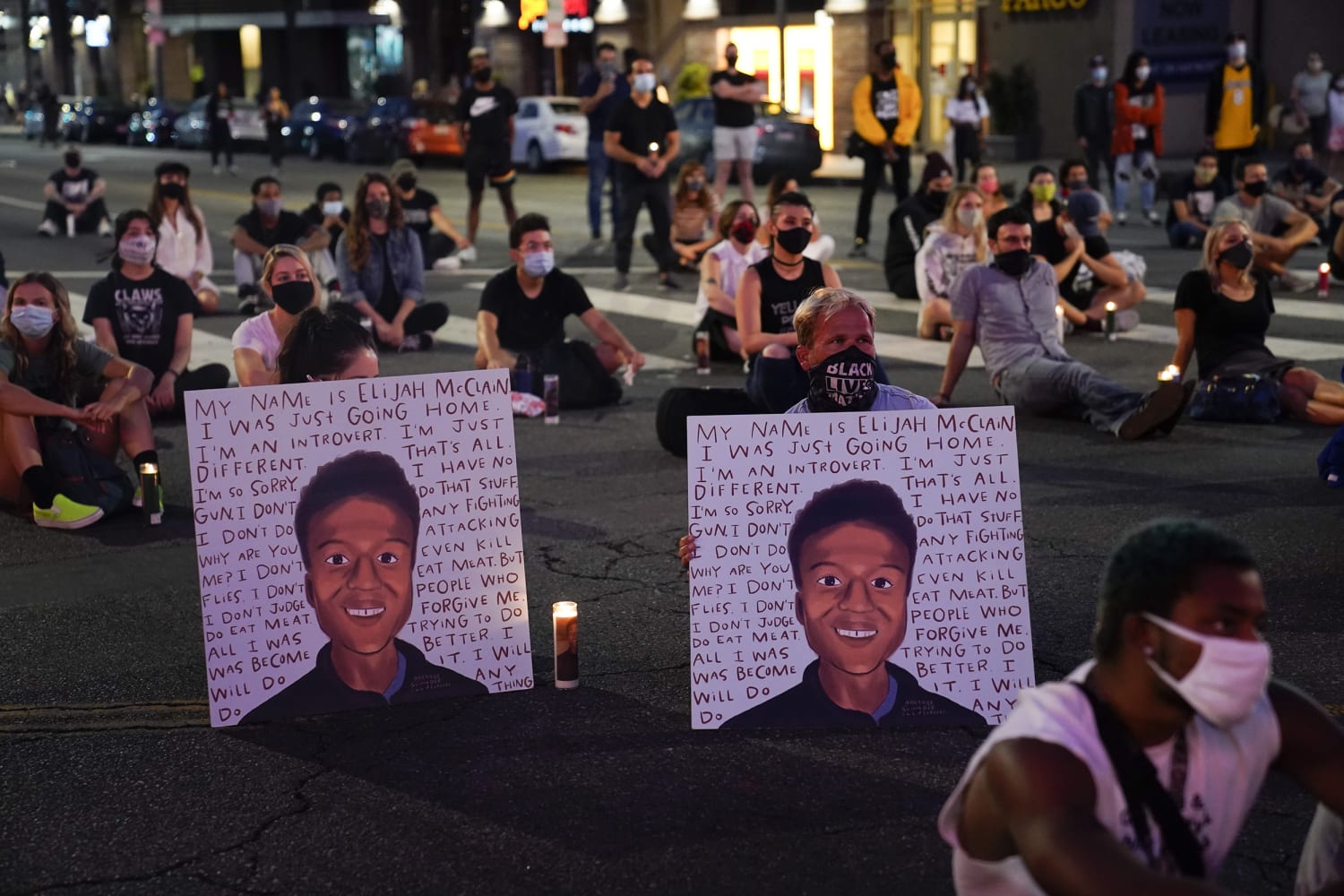At 5 feet, 7 inches and 140 pounds, Elijah McClain was hardly an imposing figure. Nor was there any reason to believe that the 23-year-old was engaged in violent or otherwise illegal activity on the night of Aug. 24, 2019, when his life was snuffed out after an encounter with police and paramedics employed by the city of Aurora, Colorado.
As important as it is to punish officers who play a direct role in incidents of police brutality, in many instances they are not the only perpetrators.
The independent three-person panel that the Aurora City Council tasked with investigating this horrific incident, which began with an all-too-familiar complaint about a “suspicious” Black man, determined that there was no legal justification for the stop in the first place. That is to say, this deadly encounter would never have occurred if the police officers had done their jobs correctly.
However, the report made clear that the Aurora fire department paramedics who responded to the scene made equally ill-advised decisions. Most importantly, they neglected to conduct any hands-on assessment of McClain’s condition when they arrived, according to the panel. Instead, they apparently relied on the police officers’ perceptions of the “threat” and chose to inject him with a dangerously high dose of ketamine to sedate him.
Ultimately, the coroner found that McClain died from “undetermined causes,” but she didn’t rule out the possibility that the chokehold applied by the police and the ketamine administered by the paramedics contributed to his death. (The Aurora police union said in a statement that “our officers did nothing wrong,” maintaining that McClain’s death was related to his decision to “violently resist arrest and a pre-existing heart condition.”)
Of course, McClain’s death at the hands of the state was not novel, though it (hopefully) still shocks the conscience, and Wednesday’s announcement by Colorado State Attorney General Phil Weiser that the police officers involved in McClain’s death had been indicted was less than surprising. But the fact that the AG additionally charged Aurora paramedics Jeremy Cooper and Peter Cichuniec with multiple counts of wrongdoing is particularly significant.
These charges against the paramedics, along with the indictment levied Thursday against a former Georgia prosecutor for allegedly tipping the scales in favor of three white men accused of killing Black jogger Ahmaud Arbery, may signal the emerging development of a new approach to holding the state accountable for the brutal treatment of Black people who find themselves in its custody.
As important as it is to punish officers who play a direct role in incidents of police brutality, in many instances they are not the only perpetrators. They are often supported by a scaffolding of enablers throughout the criminal legal system who also bear responsibility and must be rooted out for transformative change to occur.
In particular, medical professionals — both first responders and the coroners responsible for investigating in-custody deaths — have long played critical roles in determining how the outcomes of police encounters gone bad are perceived. In the case of the murder of George Floyd by then-Minneapolis Police Officer Derek Chauvin, the medical examiner’s conclusions regarding the cause of death were critical in establishing Chauvin’s culpability. The Hennepin County medical examiner made it clear that, had it not been for Chauvin’s decision to place his knee on the back of Floyd’s neck, Floyd would have survived.
In other cases, though, medical professionals have followed the lead of law enforcement rather than allowing sound medical training — and the facts — to guide their work. Last year, the American Civil Liberties Union of Maryland filed suit on behalf of the family of Anton Black, a 19-year-old Black man who suffered cardiac arrest and died in police custody in 2018 after an officer allegedly used his full body weight to pin the 159-pound teenager to the ground, face down, for at least five minutes. Police responded to the scene after being advised of an altercation, applying this extreme level force despite being informed by the alleged victim that Black suffered from schizophrenia. And like Floyd, Black repeatedly informed the officers that he could not breathe as they continued to restrain him.
The ACLU suit could have focused on the police officers’ actions, but it also named the state’s then-chief medical examiner, Dr. David Fowler, alleging that his efforts hid or obscured the role played by law enforcement in Black’s death. (In an ironic twist, Fowler took the witness stand on behalf of Chauvin at his murder trial earlier this year.)
It was not until January 2019, under public pressure and the urging of Gov. Larry Hogan, that Fowler released the medical examiner’s report, which declared Black’s death an accident— caused by a previously unknown heart condition and complications related to Black’s bipolar disorder — absolving the police officers of any wrongdoing. Not surprisingly, such a finding from the state’s medical examiner’s office can make it next to impossible to hold the police accountable for their actions.
Just Thursday, in another disturbing example of a state official apparently failing to exercise her duties without undue bias, former Georgia prosecutor Jacquelyn Lee Johnson was indicted for hindering the effective prosecution of the three men accused of killing Ahmaud Arbery in cold blood last year and “showing favor and affection” to a defendant. Although Johnson was voted out of office in November, holding her accountable for her actions by criminal prosecution is another step in the right direction.
While the outcomes of these cases have yet to be determined, we should be encouraged by these efforts to shine a light on the role that state and local actors other than the police play every day in perpetuating and reinforcing the discriminatory treatment of people and communities of color at the hands of law enforcement. And make no mistake, the same implicit and explicit bias that infects American policing — born out of the legacy of slavery and institutional racism in this country — drives the actions (and inactions) of medical personnel and officers of the court who interact with Black people who find themselves in state custody.
While the Aurora panel stopped short of blaming racial bias for the paramedics’ actions, it did make clear that “factors such as increased perception of threat, perception of extraordinary strength, perception of higher pain tolerance, and misperception of age and size can be indicators of bias,” rightly urging the city to “assess its efforts to ensure bias-free policing, implicit or otherwise.”
But the city of Aurora, and countless other state and local governments across the country, must go further and ensure that the same racism and bias that abides within police departments is also eradicated from those entities that have shielded law enforcement from accountability for so long.
Source: | This article originally belongs to Nbcnews.com











